

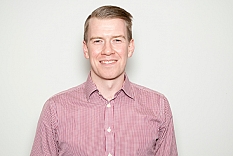
Andrew is a Neuro-Physiotherapist with 10 years experience of community neuro-rehabilitation. He joined JS Parker Ltd, North East Office, as a Case Manager in January 2017 and has a caseload of adults with brain injury and complex disabilities.
Andrew varies his approach to his caseloads to accommodate the unique requirements of all individuals. All input provided is client centred so that their aspirations and goals are the primary focus of rehabilitation input.
The client’s aspirations and goals are the basis of any therapy intervention and Andrew guides and monitors this with the use of specific interdisciplinary goals. The therapists involved in all caseloads understand the approach that is required and Andrew ensures that the chronology of the client progress is documented and reviewed appropriately.
Andrew is responsible for initial needs assessments and co-ordination, monitoring and supervision of support and rehabilitation packages for clients, both pre and post settlement and has experience in managing complex packages which require a range of support up to 24 hours. All support packages managed by Andrew adhere to CQC requirements at all times.
Commitment to brain injury is demonstrated by Andrew’s involvement as a trustee at Headway Wearside. He is also working towards his advanced BABICM membership, with a date scheduled in October 2020.
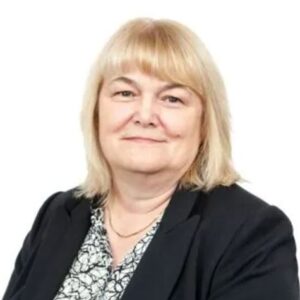
Currently a Case Manager and Director of N-Able Services Ltd in the North West, Jackie has worked in the role of a Brain injury Case Manager since 1994. Jackie is a Fellow of BABICM, having previously acted as Chairperson from June 2010 – June 2013. Jackie remains wholly committed to raising the standard of care and rehabilitation for people with acquired brain injury and continues to represent BABICM in the work with CMSUK and the VRA, regarding development of a register of case managers.
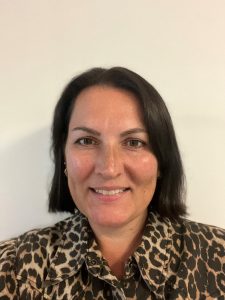
Joanna is an occupational therapist, qualifying in 2002. She started case management in 2018, progressing to clinical lead at Unite, before taking up her current Clinical Manager role at Harrison Associates. Joanna won the CMSUK ‘Catastrophic Case Manager of the Year’ award in 2021.
Following a clinical career, Joanna spent a decade working at University of Nottingham, starting as research OT on a phase II RCT (DRESS study), and progressing to Research Fellow on a multi-centre phase III RCT (OTCH study). She also completed a national survey for the Global Stroke Advisory Panel and worked on a feasibility study (BISC). She was awarded studentships to complete her MPhil and PhD. In 2014 Joanna was successful in her NIHR RfPB bid and went on to lead a 3-year feasibility RCT with health economic and qualitative evaluation (ESCAPS) as Chief Investigator with promotion to Senior Research Fellow.
Joanna won awards for her research including the Society for Research in Rehabilitation’s ‘Verna Wright Prize’; Royal College of OTs ‘Research Capacity Award’, ‘Early Career Researcher’; Health Education England’s ‘Gold Clinical Scholar’; and World Stroke Organisation’s ‘Young Stroke Professional’. In 2016 the British Council selected her to attend an international research collaboration in Brazil with brain injury clinicians and academics. Later that year, she visited leading neuroscientists at the MOVE Institute in Amsterdam before receiving further training in London in the application of transcranial magnetic stimulation for upper limb research.
Joanna was lead author on a Cochrane systematic review and has published in several journals such as the British Medical Journal. She reviewed for editorial boards and contributed to the RCP’s National Clinical Guidelines for Stroke. She has presented nationally and internally and held roles including Research/Development Officer for the RCOT’s Specialist Neurological Practice Section and Council member for the Society for Research in Rehabilitation.
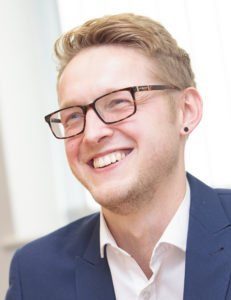
Ben qualified as a physiotherapist from Sheffield Hallam University where he began his career within a rotational post in the NHS. Here he gained experience across multiple disciplines, including amputee management, trauma orthopaedics, acute/chronic respiratory care and acute/sub-acute stroke rehabilitation. Ben went on to specialise in neurological rehabilitation whereby he developed wider skills in multi-disciplinary discharge planning of complex neurological cases and inputting to appropriate support packages to facilitate a return home.
Ben moved into the private arena working as part of a multi-disciplinary team in slow stream rehabilitation for those who have sustained ABI, and later operations manager with Bush & Company Rehabilitation. Ben’s current role is working as a rehabilitation co-ordinator for Ashtons Legal, providing clinical support to injured clients and their families and their families prior to an independent case manager being instructed.
Ben is passionate about the role of a case manager and the influence they can have on those who have sustained an ABI and their wider networks (family and friends). He is a strong advocate for using evidence based practice to ensure that the service that is delivered is effective.
Ben is keen to support/work with colleagues to engage in research to further enhance our practice as case managers and demonstrate its effectiveness in the field of ABI. He feels strongly that in an arena whereby it is becoming increasingly important to demonstrate our effectiveness as practitioners, it is paramount that further studies are completed to identify the impact we can have on a client’s life.
His particular areas of interest are working with clients with disorders of consciousness and those with high level executive dysfunction who are keen to seek employment/return to work.
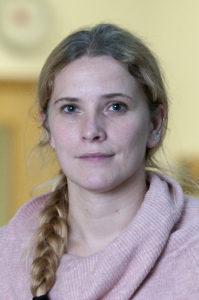
Alyson has been a Lecturer in Psychology at University of Plymouth, School of Psychology since 2011. Alyson runs the MPsych and MSc Clinical Psychology programmes as well as acting as module lead for some of the clinical modules. Alyson also works privately as a psychotherapist, her research interests include working with people with long term conditions, particularly those with appearance-altering conditions and brain injuries. Alyson has experience of working with clients and family members of those with acquired brain injuries, both in research and in clinical practice and is also a trustee for Headway Somerset.
https://www.plymouth.ac.uk/staff/alyson-norman

Philippa is an independent Occupational Therapist, expert witness and advanced brain injury case manager. Her professional experience has focussed on supporting individuals and their families following an acquired brain injury. Her professional experience has been in community, hospital, rehabilitation units and long-term care settings. She completed a MSc in Health Sciences from University of London in 1995 and a Diploma in Inclusive Environments from Reading University in 2005.
Philippa’s speciality is the rehabilitation and care of individuals with acquired brain injuries alongside a secondary diagnosis such as a learning disability, or neuropsychiatric difficulties.
She has gained a Post Graduate Certificate in Autism and Aspergers from Sheffield Hallam University in 2017, and a Post Graduate Certificate in Research Methods in 2019 from the University of Worcester.
With a commitment to enhance the research knowledge base, Philippa has embarked on a MPhil/PhD alongside her lecturing role on the BSc Hons Occupational Therapy degree course at the University of Worcester.
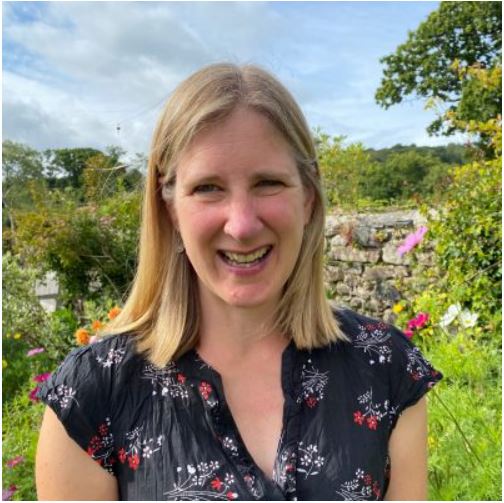
Sally qualified as an OT in 1990 at Christchurch College, Canterbury. After working on a rotation through mental health, physical disability and community work, she decided to specialise in Adults with neurological conditions in 1994. Sally completed a masters in 2002 at Exeter University in Occupational Therapy in research methods and specifically looking at quality of life after stroke. Sally has been working as a case manager since 2014 with a particular interest in adults with acquired brain injury, alongside her work as an independent occupational therapist. She has a particular interest in return to work post Abi. Sally is an Advanced member of BABICM and is committed to research around long term outcomes for clients after brain injury.
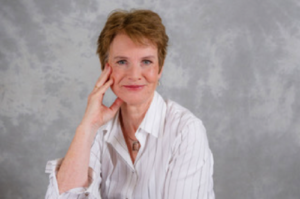
Jo is a State Registered Occupational Therapist, 1979 and completed a BA (Open University) in Psychology and Research 1986. She is the Managing Partner of Head First (Assessment, Rehabilitation & Case Management) LLP.
Jo has had a variety of jobs in the past before specialising in brain injury. She initially worked as a theatre usherette for the pantomime seasons from the age of 13, before becoming a residential social worker for disturbed adolescent girls and then qualifying as an Occupational Therapist. Jo worked as an Occupational Therapist in general units in Australia and the UK.
Jo specialised in brain injury at the National Hospital for Neurology and Neurosurgery, then in brain injury rehabilitation units at Kemsley, Grafton Manor and Ticehurst House. In May 1994, Jo established Head First and since then has continued in her role as Managing Partner of Head First, Care Expert, Case Manager, Therapist, Researcher and Writer.
Jo was a member of the Advisory Board for the Department of Health project on Head Injury in 1993-5 and a founder member of BABICM (British Association of Brain Injury Case Managers). JCW was Chair of BABICM for the period 2003-2006 and afterwards Chair of the Professional Standards Group developing competencies and standards for Brain Injury Case Managers. In June 2016 she was granted an Honorary Fellowship of the British Association of Brain Injury Case Managers.

Mark is a social work qualified independent brain injury case manager and expert witness and has worked with individuals and families affected by acquired brain injury since 1991.
Mark is Advanced Member of British Association of Brain Injury Case Managers (BABICM), former Chair of the BABICM Training and Education Sub-Group and former elected member of the BABICM Council, a Trustee of the Brain Injury Social Work Group, a member of the National Mental Capacity Forum (NMCF) Leadership Group, a member of the Advisory Board of the Mental Health and Justice Project, Kings College London and an Executive Committee member of the International Network of Social Work Acquired Brain Injury.